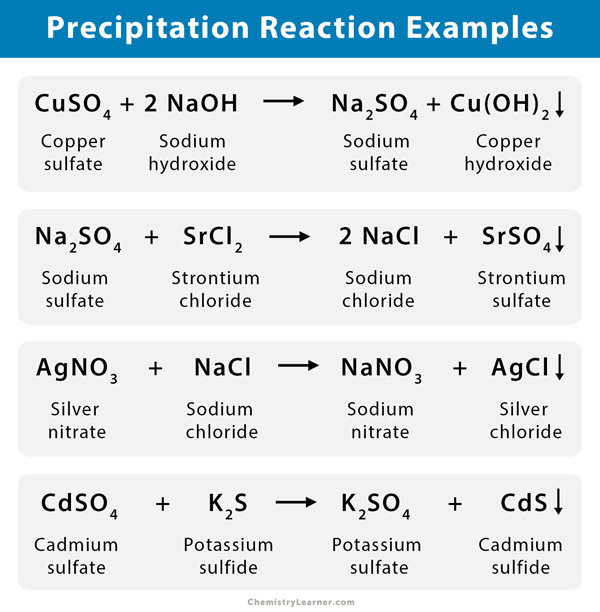
This harms aquatic ecosystems because plants and animals often cannot adapt to the acidity. Acid rain does not harm humans directly, but it can make lakes and streams more acidic. The precipitation that results from this is called acid rain. However, in some cases, pollutants in the atmosphere can contaminate water droplets before they fall to the Earth. This is because sea salt does not evaporate with water.
:max_bytes(150000):strip_icc()/precipitate-589cb8953df78c47581a9014.jpg)
Precipitation is always fresh water, even when the water originated from the ocean. Precipitates can form when two soluble salts react in solution to form one or more insoluble products. Often the precipitate emerges as a suspension. The emergence of the insoluble solid from solution is called precipitation. The indents on raindrops are caused by air resistance. In chemistry, a precipitate is an insoluble solid that emerges from a liquid solution. These extra-large drops usually end up splitting into two smaller droplets. Very large rain drops (larger than 4.5 millimeters (.177 inches)) have a huge indent and look more like a parachute. They look more like kidney beans when falling to the Earth. Larger raindrops (2–3 millimeters (.078-.118 inches) across) are also round, but with a small indent on their bottom side. In fact, smaller raindrops (ones that are approximately 1 millimeter (0.039 inches) across) are almost perfectly spherical. This helps water droplets gather together and become large enough to fall to the Earth.Ī common misconception is that when raindrops fall, they have a teardrop shape. to cause ( moisture) to condense and fall as snow, rain, etc, or (of moisture, rain, etc) to condense and fall thus.
/aspirin-paracetamol-pill-splashing-into-glass-of-water-163639094-58ef75bc5f9b582c4dff78ab.jpg)
to throw or fall from or as from a height. These particles, called “condensation nuclei,” provide a surface for water vapor to condense upon. (transitive) to cause to happen too soon or sooner than expected bring on. Solid can also form due to a change in temperature or any other environmental change that affects the solubility of the compound. In chemistry, the solid usually forms due to a precipitation reaction taking place. Particles of dust or smoke in the atmosphere are essential for precipitation. The definition of precipitate is a solid that precipitates (comes out of) solution. As the snowflakes fall through warmer air, they become raindrops. Most rain actually begins as snow high in the clouds.

These ice crystals then fall to the Earth as snow, hail, or rain, depending on the temperature within the cloud and at the Earth’s surface. If a cloud is colder, like it would be at higher altitudes, the water droplets may freeze to form ice. When the drops are heavy enough, they fall to the Earth. Precipitation forms in the clouds when water vapor condenses into bigger and bigger droplets of water. Along with evaporation and condensation, precipitation is one of the three major parts of the global water cycle. It comes in many forms, like rain, sleet, and snow. Precipitation is any liquid or frozen water that forms in the atmosphere and falls back to the Earth.


 0 kommentar(er)
0 kommentar(er)
